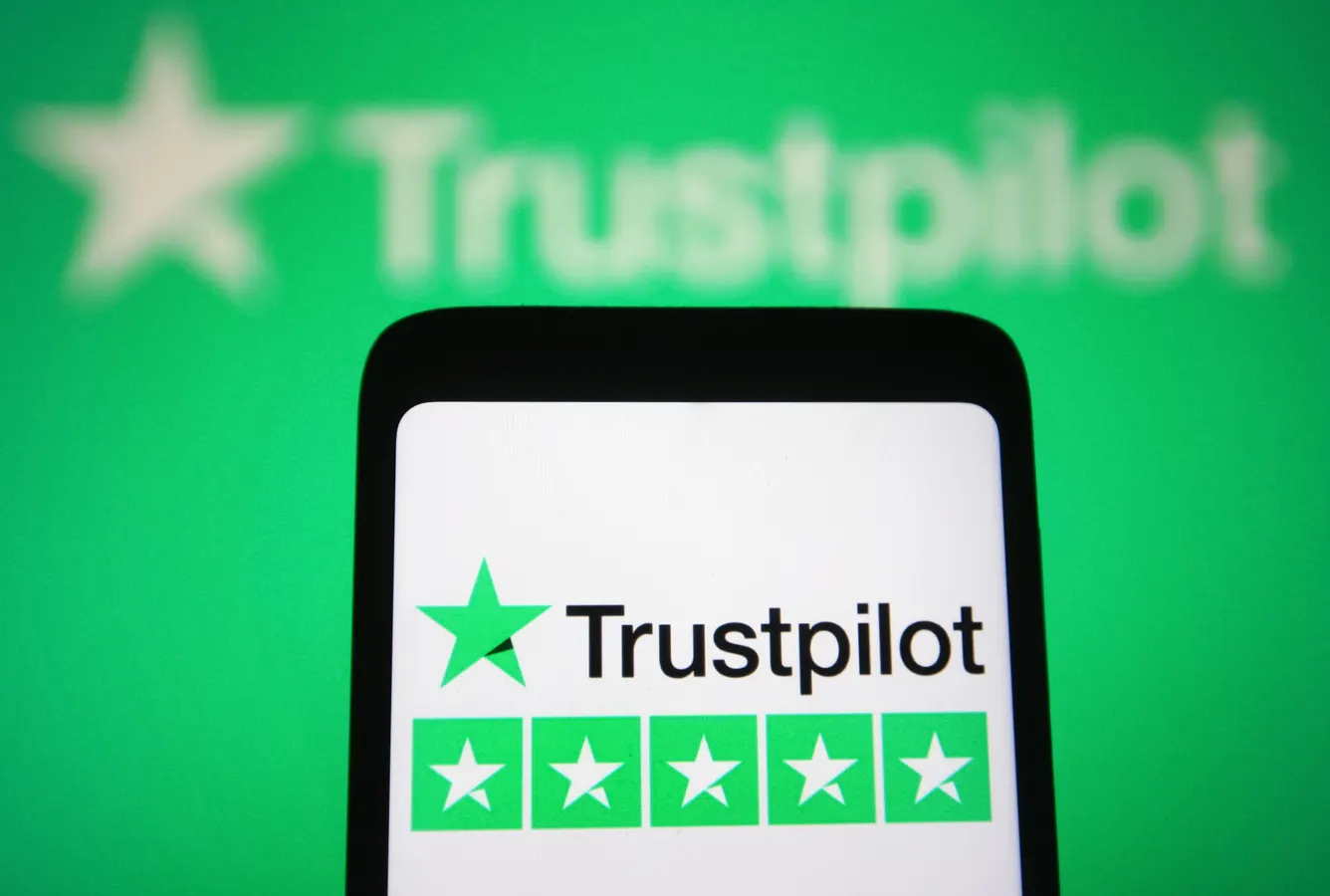By Contributor,Pavlo Gonchar,Royston Wild
Copyright forbes

Photo Illustration by Pavlo Gonchar/SOPA Images/LightRocket via Getty Images
SOPA Images/LightRocket via Getty Images
Shares in Trustpilot surged after the ratings platform raised its margin guidance and announced a fresh share repurchase programme.
At 214.4p per share, FTSE 250-listed Trustpilot’s share price was last 6.9% higher in Tuesday business.
Bookings at the customer review platform rose to $140 million in the six months to June, up 19% on a reported basis and 17% at constant currencies.
This drove revenues 23% higher (or 21% at stable currencies), to $122.8 million.
Trustpilot generates turnover by selling Software as a Service (SaaS) subscriptions to businesses that allow them to collect, analyze and manage customer reviews on its platform.
The business said it enjoyed a record number of enterprise customer wins in the period, including with Barclays, Lindt, Vimeo and Boots.
As a consequence, the number of customers paying Trustpilot more than $20,000 a year in subscription revenues has risen at a compound annual growth rate of 38% over the last two years, it said.
Margins Beat Forecasts
Trustpilot’s adjusted EBITDA margin rose 4% over the period to 14.6%, which helped adjusted EBITDA rise 70% to $18 million, beating expectations.
Pre-tax profit rose 45% year on year, to $3.7 million.
MORE FOR YOU
Adjusted free cash flow rose 157% from the same 2024 period, to $15.2 million. This encouraged the business to launch a new $40 million share buyback programme.
Cash and cash equivalents declined to $67 million at the period end from $75.6 million, chiefly reflecting an earlier $23 million share repurchase scheme.
Strong Momentum
Chief executive Adrian Blair said the company’s first-half results “demonstrate the momentum of our platform and the strength of our business model,” adding that “innovations like AI review summaries and semantic search are meaningfully advancing how consumers experience Trustpilot.”
He added that “as the importance of [large language models, or LLMs] grows, high quality human feedback is more important than ever and we are building the essential trust infrastructure that will help underpin its success.”
Trustpilot said it continues to expect “high-teens constant currency revenue growth” for the full year. Its adjusted EBITDA meanwhile is tipped to be in line with that recorded in the first half and ahead of forecasts.
Threats And Opportunities
Analysts Adam Vettese of eToro said that Trustpilot’s latest results “show some impressive momentum,” noting that “strong demand from enterprise clients and robust cash generation [demonstrate] the resilience and scalability of its SaaS model.”
However, he warned that “there are signs that bookings growth may slow in the second half, particularly as the company annualises last year’s product repackaging, and macroeconomic uncertainty in core markets could weigh on future performance.”
Vettese added that scrutiny around review authenticity is intensifying, creating challenges for firms like Trustpilot to safeguard transparency and authenticity.
The UK Competition and Markets Authority (CMA) has been increasingly clamping down on the issue of fake and incentivised reviews under the Digital Markets, Competition and Consumers Act (DMCCA).
In June, the CMA said Amazon had agreed to take steps to tackle the problem, agreeing to sanction businesses that manipulate ratings and to enhance its systems to tackle fake reviews.
Vettese noted that “while this brings additional compliance costs, Trustpilot’s focus on review verification could reinforce its competitive position.”
Editorial StandardsReprints & Permissions



